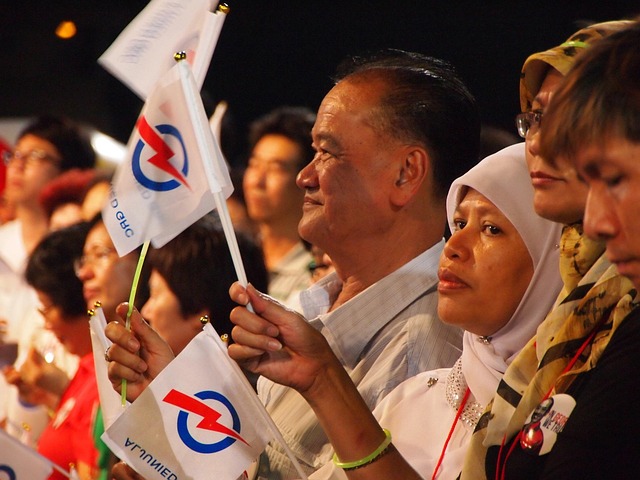Applying for Permanent Residency (PR) in Singapore can be a complex process, involving several challenges.
We have listed common challenges that every Singapore PR candidate has to face.
- Meeting Eligibility Criteria
Depending on a candidate’s profile and situation, there are various ways to apply for Singapore PR and its eligibility and requirements can vary. The most popular way to apply for Singapore PR is the Professional, Technical Personnel, and Skilled Workers (PTS) scheme, where Work Pass holders such as S Pass, Employment Pass (EP), and Personalised Employment Pass (PEP) are eligible. Another way to apply for Singapore PR is via sponsorship where an immediate family member who is already a Singapore PR or a Singapore Citizen becomes the sponsor for the candidate. Sometimes, a candidate may be eligible for more than one scheme.
In such cases, immigration consultants such as Immigration@SG (IASG) can help candidates choose the best way to approach PR applications for a higher chance of PR approval. On the other hand, if a candidate does not fulfil the eligibility and requirements of any scheme, IASG can advise on what they can do to achieve it.
- Mistakes in Document Preparation
Gathering and preparing the required documents can be time-consuming and meticulous. This includes employment history, salary records, tax documents, educational certificates, and other relevant documents. Apart from this, candidates must also ensure that all documents be translated into English and notarised for the submission. Documents that are not translated and notarised will be rejected by the Immigration and Checkpoints Authority (ICA). Documents that are not scanned properly and affect visibility will also be rejected. Missing mandatory documents is also another reason for rejection. Submitting irrelevant documents to support the application, in the hopes of a better chance at PR approval, might cause rejection as well.
Candidates may not have the time to gather and prepare their documents, especially when they are working full-time, volunteering regularly, and have a family. This is where IASG eases the PR process for candidates. IASG not only gives a detailed checklist to clients but also double checks that all the documents are perfectly ready for submission. Extra services such as translation and notarisation can also be handled by IASG.
- Stringent Evaluation Process by ICA
The ICA conducts a thorough review of each application, considering factors such as employment history, economic contributions, educational qualifications, family ties in Singapore, and ability to integrate into Singaporean society. With a 30% success rate, candidates must understand that every single mistake in the PR application will be taken into account as reason for rejection. One very common example is typo errors in the application form.
Candidates must also make sure that their application stands out from the competitors. The ICA receives around 100,000 PR applications every year, and there are many candidates that have similar profiles. IASG helps candidates strategise their PR application and submit a unique profile that makes a lasting impression of the ICA officers.
- Uncertain Waiting Time
The processing time for PR applications can vary significantly, generally taking between 3 months to a year, but it can be shorter or longer in some cases. The waiting period can be stressful due to the uncertainty. IASG has had clients and enquiries regarding the updates of their application status, even though they already have access to this information.
During this waiting period, many PR applicants would have some changes in their lives such as an increase in salary, a change in residential address, or get promoted at work. When a client informs IASG of these changes, we will make these updates on the PR application on their behalf. Many clients may not know what specific changes that need to be updated in the PR application and which are not required. IASG will help and guide clients on this.
- High Competition
Singapore attracts a large number of expatriates, and there is stiff competition among applicants. The limited number of PR approvals every year makes it challenging to secure approval. Applicants must not only meet the basic eligibility criteria but also stand out in terms of their professional achievements, contributions to Singapore, and long-term commitment to the country. Successful applicants often demonstrate strong ties to Singapore, such as long-term employment, a stable family life, and active participation in the local community.
- Social Integration Efforts
Equally important is your social integration into Singaporean society. Singapore is a multicultural nation, and the government values applicants who are willing to engage with the local community and embrace the country’s diverse social fabric. Participating in community activities, such as volunteering for local charities, joining neighbourhood groups, or being active in community centres, can be powerful indicators of your willingness to integrate socially. Additionally, making social contributions, such as participating in or supporting initiatives that benefit society, like environmental conservation projects, educational programs, or health campaigns, reflects a commitment to the well-being of the community.
Adapting to local customs, traditions, and norms is another critical component of integration. This can involve learning and using local languages, such as English, local creole language Singlish or basic Mandarin, Malay, or Tamil, understanding and respecting local festivals and holidays, and participating in cultural events. Showing an understanding of Singapore’s societal values, such as the importance of racial harmony, respect for law and order, and the collective good, further strengthens your case for integration.
- No Transparency in PR Approvals
When applying for Permanent Residency (PR) in Singapore, one of the challenges applicants face is the lack of transparency in the evaluation process. The Immigration and Checkpoints Authority (ICA) uses a comprehensive assessment method to determine who is granted PR status, but the specific criteria and the weightage assigned to various factors are not publicly disclosed. This opacity makes it difficult for applicants to predict the outcome of their application or to fully understand how different aspects of their profile will be evaluated.
The ICA considers a range of factors when assessing PR applications, including but not limited to the applicant’s age, educational background, professional qualifications, employment history, financial stability, family ties to Singapore, and contributions to the community. However, the relative importance of each factor remains unclear. For example, while having a strong professional background and stable employment might be crucial, it’s uncertain how much weight this carries compared to other factors like community involvement or family connections in Singapore.
This lack of transparency means that even applicants who appear to have strong credentials may find their applications rejected without clear reasons. The unpredictability of the process can be frustrating, as it is difficult to know which areas to focus on to improve one’s chances. Moreover, because the evaluation process is not standardised or explained in detail, two applicants with similar profiles might receive different outcomes based on subtle differences that are not obvious to those outside the decision-making process.
Given this uncertainty, many applicants choose to present a well-rounded profile, aiming to demonstrate strength across various areas, such as professional achievements, social contributions, and cultural integration. Despite this strategy, the final decision remains in the hands of the ICA, and without a clear understanding of the internal assessment process, predicting the success of an application is inherently challenging.
This element of unpredictability underscores the importance of thoroughly preparing your application, seeking professional advice from immigration consultants such as IASG, and understanding that, ultimately, the decision is made based on criteria that are not fully transparent. Applicants are encouraged to put forth their best possible case, knowing that the outcome may hinge on factors that are not explicitly communicated or understood.
- Changing Application Processes
Immigration policies can evolve over time in response to changing national priorities, economic conditions, and demographic trends. In Singapore, as in many other countries, the government periodically reviews and adjusts its immigration policies to align with the nation’s long-term goals and needs. These changes can directly impact the eligibility criteria for Permanent Residency (PR) and the evaluation process for applicants.
During periods of economic downturn, the government may prioritise applicants with skills in industries that are crucial to economic recovery, whereas in times of economic growth, there might be a broader acceptance of applicants across various sectors. Similarly, demographic considerations, such as the ageing population or the need to balance the ratio of locals to foreigners, could influence policies regarding who is eligible for PR and under what conditions.
Given the potential for such changes, staying informed about the latest immigration regulations and policy updates is crucial for anyone considering applying for PR in Singapore. This includes regularly checking official government websites, consulting with immigration experts, and keeping abreast of news related to Singapore’s immigration policies. Understanding current trends and anticipating possible future changes can help applicants better prepare their applications, ensuring they meet the most up-to-date requirements. This is something that might affect PR candidates who apply PR on their own greatly.
Failing to stay informed about policy changes can lead to missed opportunities or even PR rejection if an application no longer meets the revised criteria. On the other hand, being proactive and adapting to new regulations can significantly enhance an applicant’s chances of success. In a competitive and ever-changing immigration landscape, this vigilance and adaptability are key to navigating the complexities of the PR application process.
To ease the PR application process, get the services of an immigration expert. Whatsapp IASG at +65 8766 1966 or email to info@iasg.com.sg for help.







